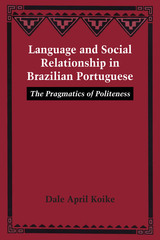
Beethoven cast a looming shadow over the nineteenth century. For composers he was a model both to emulate and to overcome. "You have no idea how it feels," Brahms confided, "when one always hears such a giant marching behind one." Exploring the response of five composers--Berlioz, Mendelssohn, Schumann, Brahms, and Mahler--to what each clearly saw as the challenge of Beethoven's symphonies, Evan Bonds richly enhances our understanding of the evolution of the symphony and Beethoven's legacy.
Overt borrowings from Beethoven--for example, the lyrical theme in the Finale of Brahms' First Symphony, so like the "Ode to Joy" theme in Beethoven's Ninth--have often been the subject of criticism. Bonds now shows us how composers imitate or allude to a Beethoven theme or compositional strategy precisely in order to turn away from it, creating a new musical solution. Berlioz's Harold en Italie, Mendelssohn's Lobgesang, Schumann's Fourth Symphony, Brahms' First, and Mahler's Fourth serve as illuminating examples. Discussion focuses on such core issues as Beethoven's innovations in formal design, the role of text and voice, fusion of diverse genres, cyclical coherence of movements, and the function of the symphonic finale.
Bonds lucidly argues that the great symphonists of the nineteenth century cleared creative space for themselves by both confronting and deviating from the practices of their potentially overpowering precursor. His analysis places familiar masterpieces in a new light.

Hope Is an Imperative brings together in a single volume Professor Orr’s most important works. These include classics such as “What Is Education For?,” one of the most widely reprinted essays in the environmental literature, “The Campus and the Biosphere,” which helped launch the green campus movement,and “Loving Children: A Design Problem,” which renowned theologian and philosopher Thomas Berry called “the most remarkable essay I’ve read in my whole life.”
The book features thirty-three essays, along with an introductory section that considers the evolution of environmentalism, section introductions that place the essays into a larger context, and a foreword by physicist and author Fritjof Capra.
Hope Is an Imperative is a comprehensive collection of works by one of the most important thinkers and writers of our time. It offers a complete introduction to the writings of David Orr for readers new to the field, and represents a welcome compendium of key essays for longtime fans. The book is a must-have volume for every environmentalist’s bookshelf.

The Imperative of Reliability examines the development of nineteenth-century Russian prose and the remarkably swift emergence of the Russian novel. Victoria Somoff identifies an unprecedented situation in the production and perception of the utterance that came to define nascent novelistic fictionality both in European and Russian prose, where the utterance itself—whether an oral story or a “found” manuscript—became the object of representation within the compositional format of the frame narrative. This circumstance generated a narrative perspective from which both the events and their representation appeared as concomitant in time and space: the events did not precede their narration but rather occurred and developed along with and within the narration itself. Somoff establishes this story-discourse convergence as a major factor in enabling the transition from shorter forms of Russian prose to the full-fledged realist novel.


"Give me the salt" and "Please pass the salt" make the same request, but in a polite situation the first utterance may give offense, while the second may not. How and why such differences in wording and intonation, in a particular context, produce different effects is the concern of pragmatics, the area of linguistics that deals with how speech is used in interaction. In this innovative study of pragmatics in Brazilian Portuguese, Dale Koike analyzes the politeness phenomenon, specifically in the context of speech acts known as "directives."
As acts intended to get someone to do something, directives bring into play a variety of sociocultural factors, depending on the relationship between the participants. Using empirical data obtained through natural language observation and from questionnaires of over one hundred adult native speakers, Koike identifies factors—such as age, education, and gender—that influence the strategies of politeness a given speaker is likely to use in making a directive. This research clarifies the unwritten language rules and assumptions that native speakers intuitively follow in phrasing their directive utterances.
Koike also includes important material on the acquisition of strategies for politeness by children and adult second-language learners, as well as on gender differences in politeness forms. Her research proposes important additions to the theory of speech acts as conceived by Austin and Searle, particularly in the application of deictic organization to account for a hierarchy of pragmatic forms.
Language and Social Relationship in Brazilian Portuguese will be of interest to a wide audience in diverse fields, including linguistics, anthropology, interaction analysis, communications, semantics, sociology, psychology, and education.
READERS
Browse our collection.
PUBLISHERS
See BiblioVault's publisher services.
STUDENT SERVICES
Files for college accessibility offices.
UChicago Accessibility Resources
home | accessibility | search | about | contact us
BiblioVault ® 2001 - 2024
The University of Chicago Press









